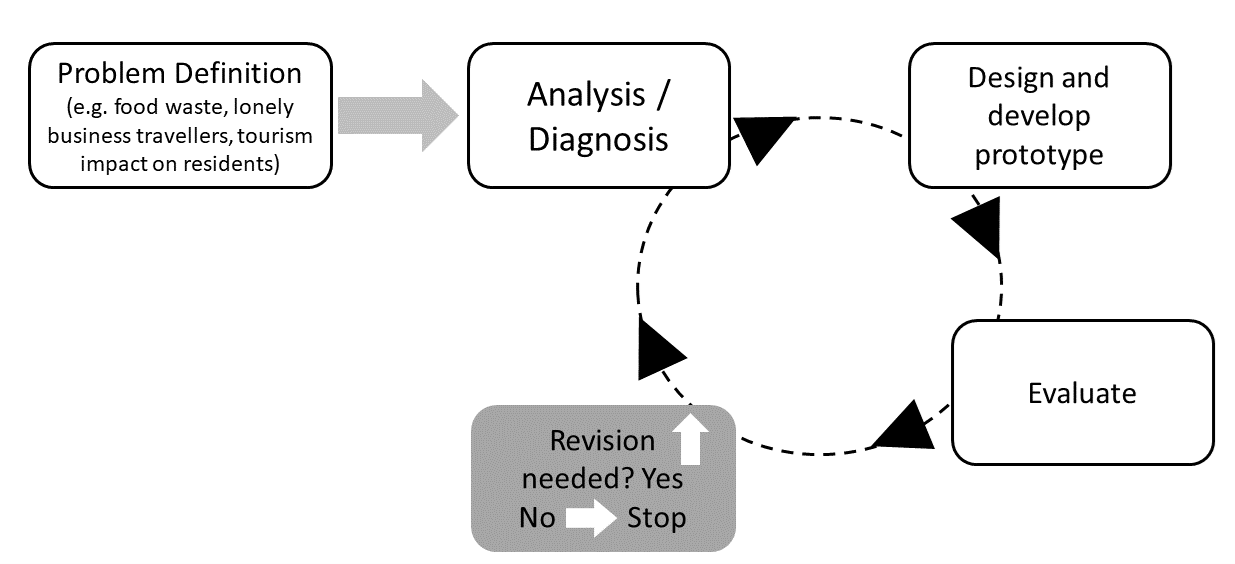Educational innovation
At a guest lecture at Hotelschool The Hague, CitizenM’s Michael Levie pinpointed the relation between industry innovation and traditional education programmes, in his reflection that if an innovation emerges in the industry, it takes four years before schools incorporate it into their programmes, another four years before the first students graduate with knowledge about the innovation, and a few more years before to grow to management positions… by which time their innovative insights will again be obsolete.
So, the question is, how can higher education institutes shorten their innovation cycle? And if we accept that the future is uncertain, and that we must anticipate multiple plausible outcomes in research as well as in business strategies, how can we prepare students for that uncertainty? A first answer is that the role of higher education cannot be to just emulate what is happening in the industry, but that it must take a role as thought leader in developing those innovations. In the second place, the volatility of our future means that it will not always be possible to provide to our students the knowledge that is not there yet, but that instead we should train their inquisitive skills so that they will be able to address emergent issues in their professional future.
Hotelschool The Hague was awarded a Comenius Leadership Grant in 2018 to implement Design Based Research as the ‘epistemological backbone’ of its education. The underlying ideas were discussed in the book Innovation in Hospitality Education. Anticipating the Educational Needs of a Changing Profession and in the article ‘Preparing Hospitality Graduates for a Volatile Future: The need for “Field Problem Solvers”.’
